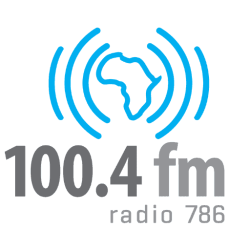Source: Radio Days Africa | 15 July 2020 |
The radical shift that the media environment has experienced in the past decades is nothing new.
However, what the sector has witnessed in the last few months during this coronavirus pandemic, is entirely worrying for its long-term survival. Across the world, media houses have been forced to shut down. Circulation numbers have gone dismal, advertising revenues have dwindled and employers have been quick to cut salaries; jobs losses announced and workers forced to take leave. Suffices to say that these drastic conditions have threatened a potential demise of the media ecosystem.
Recently, the South African National Editors’ Forum’s (SANEF) mentioned that the coronavirus pandemic has further exacerbated an already deteriorating situation and newsrooms are left desperately seeking new ways to survive while consumers are keen on reliable and timely information. The organization observes that there is no clarity regarding the number of jobs lost at community radio stations, “some of which have accessed government emergency funding of R10-million for all community media, but the decline in advertising revenue has been substantial.”
Broadly, the coronavirus pandemic has accentuated three major issues for radio broadcasting and the entire media ecosystem. Firstly, COVID-19 has once again highlighted the significance of radio, in particular community radio, in responding to the fight against a pandemic. Duduetsang Makise, National Coordinator SOS Support Public Broadcasting, was one of the guests for day seven of Radio Days Africa webinar, which looked at the topic “Rules, Regulations or Red Tape.” She captures the significance of radio during this crisis and how its level of intimacy stands above all other platforms. “Now more than ever, we suddenly realize just how intimate the radio platform is above all other platforms. It has become more than just the trusted friend to families and communities, it is the go-to place for credible information.”
Part of the problem during this unprecedented time, is that people have struggled to know which information to act on. But radio has been phenomenal in not only addressing this problem, but has also dispelled rumors, fakes news and refuted myths and conspiracies around the coronavirus. In this regard, Duduetsang singled out the power of community radios in addressing neighborhood information gaps. “It’s also now that the neighbor can confirm what government is doing on the ground, what community-based organizations (CBOs) are doing on the ground and really how to marshal resources and how to mobilize people around accessing greater healthcare and responding to the pandemic.”
Radio broadcasting connects citizens to the national conversation. At community level, for example, voices of local leaders inspire subjects, institute sense of confidence and belief in their collective fight against the crisis. This is why Duduetsang’s point about radio “punching above its weight and proving that it is a great medium particularly for times of crisis,” cannot be more significant. The Executive Director of National Association of Broadcasters, Nadia Bulbulia, takes this one-step forward by praising efforts of broadcasters’ dedication to providing citizens with relevant information about the virus. She notes, “broadcasters themselves have risen to the challenge in terms of communicating during this time of crisis and emergency.” She went on, “we have seen great deal of public service awareness campaign, and educational programming.”
A second major issue for broadcasting during COVID-19 is funding. As SANEF points out in this recent research, ‘it is saddening that the monetary cost of the entire industry is in the grand scheme of things so little and its role in ensuring a well-functioning democratic society so large.’ One can only infer that the economic effect of coronavirus has been truly devastating for the news media and its impact can be felt in the closure of outlets, retrenchments and shrinking of newsrooms. Nadia draws on loss of advertising revenue as major reason why the media is struggling. “The industry is an absolute advertising freefall. The entire free system depends on advertising revenues. With the lockdown, advertising just plummeted,” she notes. She continues that the industry has not received any direct funding from the talk about relief measures.
This funding problem has the potential to undercut the editorial integrity and autonomy of newsrooms. This is partly why Duduetsang’s argument about a more coherent approach to mobilizing resources must be treated seriously. She notes, “when you talk about putting some type of relief for the sector, it is not just the broadcasters that have to be attended to. Literary, it is the individual journalists, producers that are inside those broadcasters who are the ones that are going to suffer the most.” For once, she says, there is a need for all players in the sector to come on board and develop a coordinated approach that government can respond to.
She concludes with our third and final point, which is about regulation. Duduetsang called on the Independent Communication Authority of South Africa (ICASA) to rethink its strategy and adapt a more tech savvy approach in regulating and responding to the plights of the media. “We also need to start thinking about what it is going to look like after this. Whether it is in twelve or twenty-four months, the writings on the wall that we do need some significant and rather radical changes in terms of how we regulate the sector. We can no longer regulate if we are not in a digital environment,” she notes.
Violet Molete is the Senior Manager for Policy, ICT at ICASA. For her the media environment is changing and therefore the entire broadcasting sector should be revamped. This revamping should take into cognizance both operational and regulatory perspectives. “We need to seat together and have serious discussions as to what we see as broadcasting in a digital age.”
In her view, the current regulations are not fit for purpose and therefore need to be overhauled. This is why she thinks there is a high competition for advertising revenues because all licensed media compete for the same cake.
Finally, coronavirus pandemic is only the tipping point of a crisis that has been long coming. Reality is that before COVID-19, journalism has been hallowed by social media and other structural shifts that have significantly affected revenue generation. Taken together, these trends are likely to offset biggest wave of lay-offs in the field, as we have seen, affecting the media’s watchdog functions and potentially its very demise before our own eyes.








